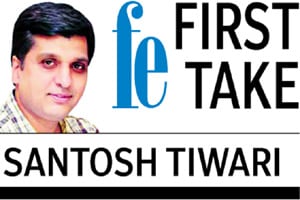 Prime minister Narendra Modi’s personal touch to India’s relationship with other countries world over is adding a new dimension to the country’s acceptance as a significant player in international politics and also bi-lateral and multi-lateral deliberations.
Prime minister Narendra Modi’s personal touch to India’s relationship with other countries world over is adding a new dimension to the country’s acceptance as a significant player in international politics and also bi-lateral and multi-lateral deliberations.
If his friendship with the US president Barack Obama has made Indo-US relationship stronger, the positive developments in terms of Indo-Pak talks in the recent weeks can solely be attributed to his good relationship with the Pakistan prime minister Nawaz Sharif.
The confidence, warmth, transparency and a commitment that could convince the other side of positive results, all required to be a good statesman, seems to come naturally to PM Modi, and this is what is making him so acceptable globally in terms of finding solutions to teething issues — be it the climate talks or the Indo-Pak ties.
The surprise meeting between PM Modi and PM Sharif in Lahore on Friday is hardly a surprise in this backdrop.
Going by the experience of about 19 months of his tenure as India’s prime minister, breaking of barriers and extraordinary warmth will remain an essential feature of PM Modi’s international engagements.
It may be a mere coincidence that he decided for the stopover in Lahore while returning from Kabul to Delhi on December 25, former prime minister Atal Bihari Vajpayee’s 91st birthday, but it is also true that he had played a great role in improving the Indo-Pak ties during his tenure in the previous NDA regime — not surprisingly, both talked about Vajpayee in Lahore.
To his advantage, PM Modi has both, an able national security adviser (NSA) Ajit Doval and a competent external affairs minister in Sushma Swaraj, to take care of India’s interest and do the ground work for him to take his initiatives to the next stage.
As 2015 draws to a close, in the next year and also the remaining years of his tenure as prime minister, as in the domestic arena, on the global stage too, outcomes will decide how successful his statesmanship is on delivering results.
In the case of Indo-Pak ties, the results of the SAARC summit in Islamabad next year and grant of the most favoured nation (MFN) status to India by Pakistan will be significant in this regard along with the easing of tensions across borders.
Similarly, on the global stage, India’s achievement in capitalising the WTO platform to boost trade will be crucial, going ahead, as developed countries like the US have already found an alternative window in the trade pacts such as TPP to protect their interest.
All this also requires sustained improvement in the domestic business and growth scenario.
PM Modi will have to find a way to pass reform Bills like the goods and services tax (GST) and proposed labour law changes to improve ease of doing business.
Finance minister Arun Jaitley has done well by agreeing to refer the Insolvency and Bankruptcy Bill to a joint committee of Parliament increasing its chances of getting passed quickly.
If PM Modi is ready to take the accommodating path in Parliament, like the ones that he is showing in dealing with India’s international relationships, he will raise the chances of attaining higher economic growth in a big way.

